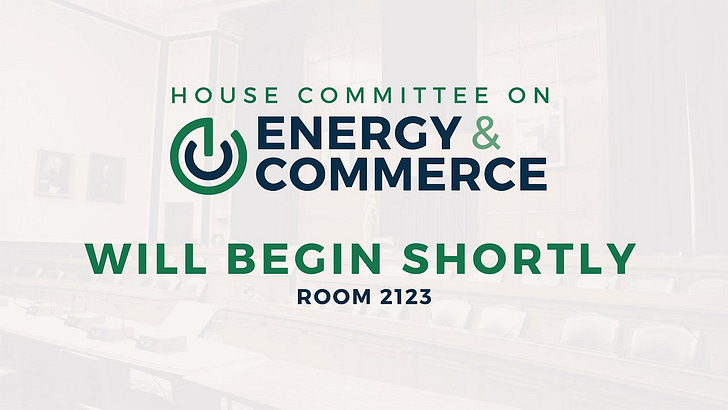My Testimony Before the House Energy & Commerce Subcommittee on Energy, Climate, and Grid Security
Energy can be a bright spot in the American economy if we let it
I had the honor of testifying yesterday before the House Energy and Commerce Subcommittee on Energy, Climate, and Grid Security. The hearing was titled “From Gas to Groceries: Americans Pay the Price of the Biden-Harris Energy Agenda.”
Archived video of the hearing is available here (and embedded below), and my written testimony is available here.
What follows is a transcript of my opening statement.
Chair Duncan, Ranking Member DeGette, and distinguished members of the subcommittee:
My name is Travis Fisher, and I am the Director of Energy and Environmental Policy Studies at the Cato Institute.
Cato is a nonpartisan public policy research organization in Washington, D.C. that promotes individual liberty, limited government, free markets, and peace.
It is an honor to speak with you today about the impact of the Biden-Harris administration’s energy policies on the affordability and security of energy for American families and businesses.
Unfortunately, bad energy policy has put the United States in a very weak position.
American families face rising utility costs and increased strain on household budgets. American businesses—especially the energy-intensive industrial sector—face an uncertain energy future and unnecessary delays. For residential and industrial consumers alike, I am concerned about whether new energy supplies can reliably meet rising demand.
And the stakes are high. We have to remember the definition of energy in physics: the ability to do work. Energy policy is too important to get wrong, yet that is precisely what I have witnessed in recent years.
As I see it, there are two completely different paths forward regarding energy policy in the United States.
The first, which I support, is to embrace American values and foster an energy industry that harnesses entrepreneurship and free-market competition to best serve the interests of consumers. This path recognizes the fact that the majority of Americans are unwilling to sacrifice their well-being on behalf of a top-down energy transition.
The second, which is the path the Biden-Harris administration has chosen, is to force a transition to politically favored technologies that consumers don’t want. Taking this second path puts politics over physics, and I can’t support it.
Specifically, I want to highlight three major executive branch policies that lie along this path. Each one harms the reliability and affordability of energy in the United States.
First is the Inflation Reduction Act or IRA. The subsidies in the IRA for wind, solar, and batteries alone could cost American taxpayers $3 trillion by 2050. Those tax credits are not only irresponsible in light of our fiscal situation but also distort the market signals that bring supply from more reliable energy sources.
Second is the regulatory overreach coming from the Environmental Protection Agency or EPA, including emissions regulations for vehicle tailpipes and power plants. These rules mandate technologies that many Americans don’t support. They also violate the Major Questions Doctrine, meaning the EPA doesn’t have clear authority from Congress to enact them.
Between the IRA subsidies and the EPA rules, I would summarize the administration’s power grid policy as this: Green the grid and brace for blackouts.
Third is the set of arbitrary decisions across many agencies to put the current administration in the role of a central planner of the oil and gas industries. The administration calls this a “whole of government” approach.
As one example, earlier this year the Department of Energy decided on a whim that it would pause approvals to export liquefied natural gas. Another example is using the Strategic Petroleum Reserve to score temporary points among voters around election time. Yet another example is the Securities and Exchange Commission attempting to become a climate regulator.
As a consequence of this “whole of government” opposition to a wide range of energy resources, Americans have seen the cost of energy rise. This is a significant problem because higher energy costs are regressive and raise the cost of everything. Food, transportation, and other basic goods and services require energy as an input—when energy costs rise, those increased costs show up in every part of the economy.
The American people want reliable energy at low cost, and policymakers should listen. We need policies that make energy easier to produce and more affordable for American families and businesses. In living rooms across the country, access to low-cost energy can make the difference between light and darkness.
It’s not too late to stop the coming energy crisis, because it’s a crisis caused by unwise policies, and we can reform them. Energy can be a bright spot in the American economy if we let it. I urge you to choose the path that will lead to a bright future for America.
Thank you.




I’d love to see video of the faces of the Democrats on the committee while you spoke. Their heads probably exploded but then again, they might have just skipped the committee meeting as your words might have offended them.
Right on. Thanks much.